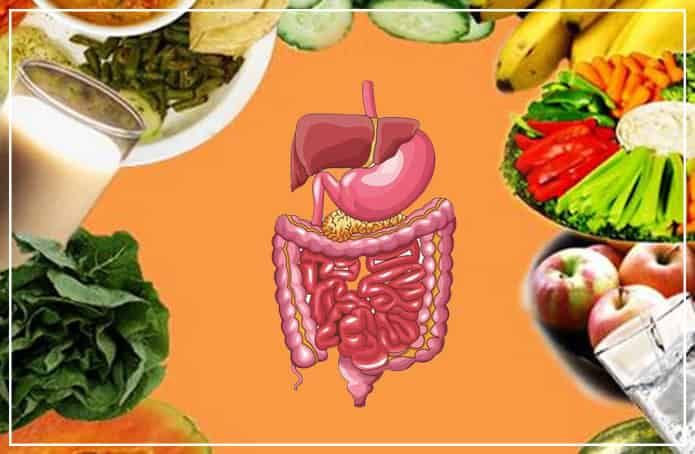We are well aware that digestive health is the most important to take care of as it lays the foundation for our overall health and wellness. But one must know how to keep the stomach healthy and clean.
We are far away from the facts of foods which improve digestion, in reality, we are covered with bacteria internally and externally both, colonies of microorganisms are comfortably residing in our gastrointestinal tract, billions of bacteria live on our skin, and all these microbes make up the communal microbiome.
❍ Tips To Build Digestive Health 1 Change Diet to Heal Gut
What one eats determines which bacteria flourish in our stomach. And research tells us that the good bacteria get stronger when we feed them the right foods.
It is strange to know that our body can create a new stomach microbiota, in just 24 hours by the change in diet.
Improving our digestive health can help us to feel better, lose weight, provide sustained energy and so it’s never too late to start healing our stomach.
❍ Tips To Build Digestive Health 2 Natural Foods
The Digestive system of one should be strong and good enough to function properly. When we talk about foods that would help to maintain a healthy digestive system, there are two main categories to concentrate.
- Prebiotics: Food for our good stomach bacteria. Prebiotics are fibers that we don’t digest ourselves, so they are consumed by the good bacteria in our stomach.
- Probiotics: Multiplication of good bacteria in the stomach.
Prebiotic and probiotic foods when consumed in combination, work together to create a healthier, happier digestive system.
Prebiotic and Probiotic Foods
- Fermented Foods
- Fiber
- Fruit
- Foundation Foods
❍ Tips to Build Digestive Health 3 Fermented Foods
Fermented foods supply lots of healthy, living microorganisms to swarm out the accumulated unhealthy bacteria, and support the overall health of the digestive system.
When foods ferment, they create lactic acid or alcohol, which helps to preserve the food. In the same process, fermentation produces large amounts of probiotics, which keeps our gut healthy.
Some highly recommended fermented foods that can easily add to our stomach healthy diet to supercharge our stomach health plan are described below:
- Sauerkraut: Sauerkraut (or fermented cabbage) is a staple food in German cuisine. It is high in B vitamins and useful in the absorption of iron. Garnish it on a hot dog, sandwich, or use it as a seasonal vegetable like any grain, legume, scramble, meat, or vegetable dish.
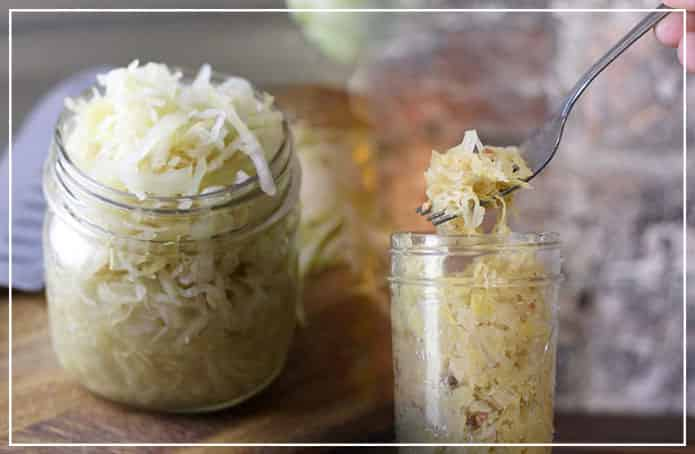
- Tempeh: It is a fermented soy-based food that’s been around for centuries. It tastes good in salads, on sandwiches, or as a tasty bacon alternative. But make sure one should thoroughly cook tempeh before eating. One might need to make it tastier because plain tempeh can be very bland.
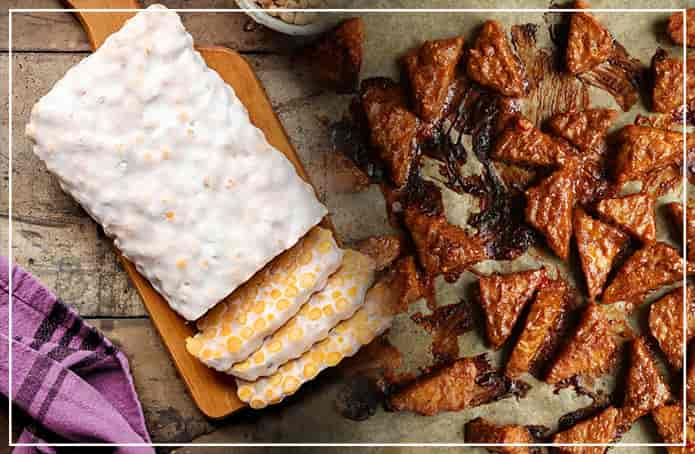
- Miso: It is a traditional Japanese soybean paste, it is a probiotic powerhouse. Soup can be made of Miso paste, added to salad dressings, or turned into healthy mustard or plant-based miso-mayo. Whenever one chooses soy-based products, remember to choose organic because most non-organic soy is genetically modified.
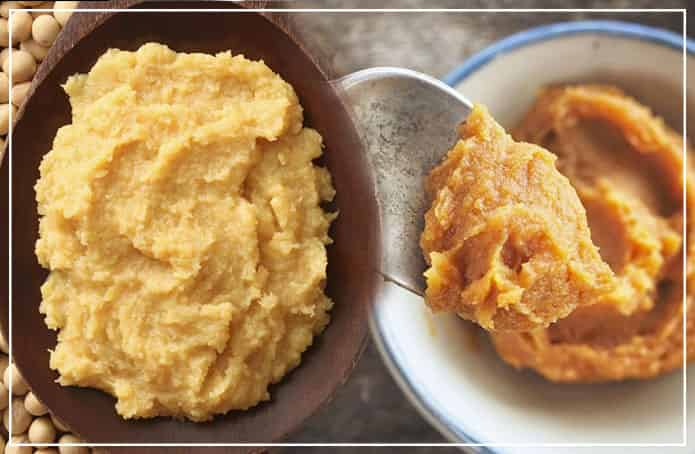
- Kefir: Kefir is a refined, fermented beverage that tastes a lot like a yogurt drink. It’s made by using starter grains, just as sourdough bread is made from a starter.
Kefir is most commonly made with dairy milk, but it can be made with non-dairy alternatives including coconut milk, rice milk, coconut water, and goat’s milk.
Because it’s a fermented product, even people who are lactose intolerant can tolerate dairy-based kefir. But make sure one is not adding much sugar to it as one will be negating its good effect on the gut bacteria.
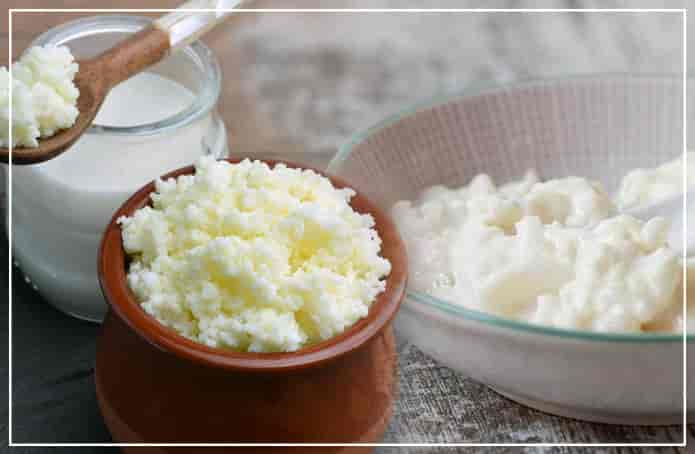
- Pickles: The pickle is another great probiotic food choice. Pickles, whether they are the cucumber variety, or made from other vegetables, are high in antioxidants, good gut bugs, and probiotics. But not all pickled foods are fermented. Use fresh varieties.

- Yogurt: Yogurt is a naturally fermented food that can offer some serious probiotic power if one chooses the right kinds. While most yogurts contain bacteria, make sure one looks for a yogurt that has at least 1 billion live or active colony-forming units (CFUs) on the label. One should stay away from the yogurts loaded with sugar since sugar is bad for the healing gut.

- Kimchi: Kimchi is a spicy Korean alternative to sauerkraut. Kimchi is fermented cabbage made with several different spices like salt, chili powder, onion, garlic, and ginger. Studies have shown that this fermented cabbage Korean staple is rich in two strains of good bacteria associated with better gut health: Lactobacillus and Bifidobacterium.
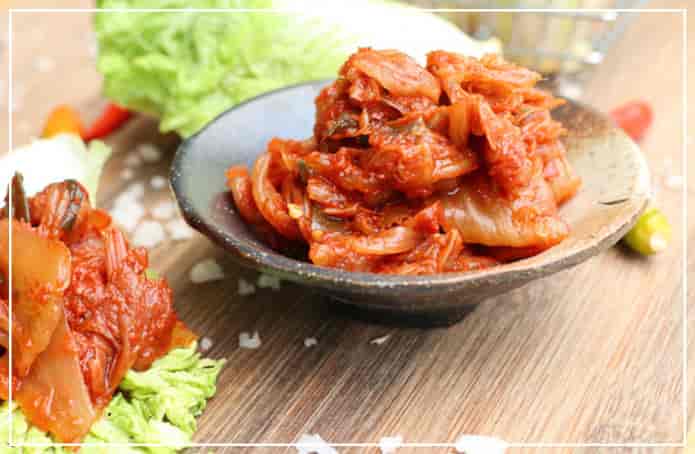
Note: Many of these fermented foods are high in salt, so consume small portions of fermented foods daily and using them as a source of salt, and try to avoid table salt, soy sauce, or other salt sources.
❍ Tips To Build Digestive Health 4 Fibre
Fiber is the most fundamental ingredient for gut health. It is a potent pre-biotic, feeding the good bacteria our gut needs to be healthy. It is also a warrior in the battle against diverticulitis, the inflammation of the intestine. According to a medical study, eating insoluble fiber-rich foods has been found to reduce the risk of diverticulitis by 40%.
Here are some of the best prebiotic powerhouse’s foods which can add to our gut health diet:
Beans: Beans feed good gut bacteria, which in turn enhances the immune system. They are packed with fibre, protein, folate, and B vitamins, which play a role in regulating a healthy gut and a healthy brain.
Flaxseed: Flaxseed fuels our good gut flora, contains soluble fiber and can help improve digestive regularity. One got to eat flaxseed ground up, or the seeds will pass through your digestive tract without being digested at all. Add ground flaxseed to smoothies or salads. Keep the flaxseed in the refrigerator because once its ground, it can go sour fast.
Jicama: This sweet, crunchy root vegetable is packed with fiber. One cup of raw jicama adds a whopping 6g of fiber to the diet. High in vitamin C, jicama is also great for weight loss and blood sugar control. Add it to salads, stir-fries or enjoy it as a crunchy snack.
Jerusalem artichokes: Also known as a sunroom, sunchoke, or earth apple, the Jerusalem artichoke is high in inulin, an insoluble fiber. Inulin travels to the colon where it ferments into healthy good bacteria. One can cook Jerusalem artichokes like a potato or shred it raw and add it to salads. Initiate with a small number of vegetables because it can cause gas until our gut adjusts.
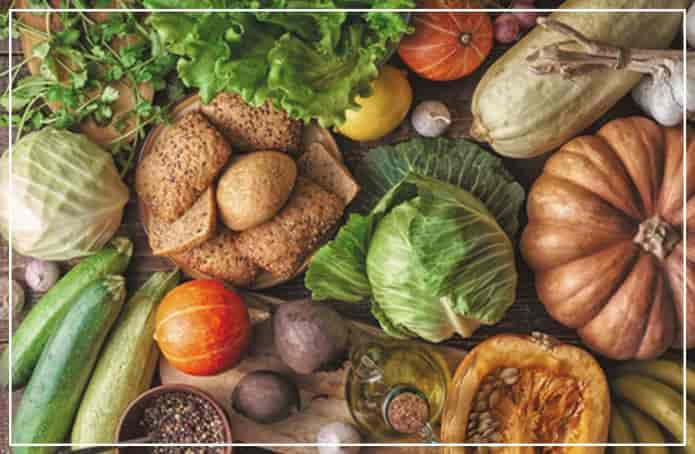
❍ Tips To Build Digestive Health 5 Fruits
Most fruits are healthy options, but these three are powerful additions to our gut health diet.
Apples: They are an excellent addition to a gut health diet.
They are high in fiber, and a recent study found green apples boost good gut bacteria. Stewed apples have been found to be good for our microbiome, and they may also help to heal our gut. An apple a day keeps the doctor away is a true proverb.
Blueberries: Blueberries are amazing for healthy goodness. A well-known superfood, these are full of antioxidants, vitamin K compounds, and fiber. Studies have also shown that blueberries diversify our gut bacteria.
Bananas: Bananas have long been a standard prescription for an upset stomach. That’s because compounds in bananas work to maintain harmony in the gut microbiome. Bananas reduce inflammation, due to high levels of potassium and magnesium. So slice some on your oatmeal, can use in a smoothie, or can eat raw as a mid-day snack.

❍ Tips to Build Digestive Health 6 Nutrient-Rich Foods
Now that one has got Fermented, Fibre and Fruit foods aligned, there are other good choices to add to our gut health diet. All of these foods are great nutrient-rich foods that also support our gut-healing diet.
- Broccoli
- Dandelion Greens
- Asparagus
- Seaweed
- Garlic, onions, scallions
- Gum Arabic
- Barley
- Shirataki Noodles
- Cacao
- Wheat Bran
- Chicory Root
- Chickpeas
- Oatmeal
Any of these foods can be used according to one’s choice.
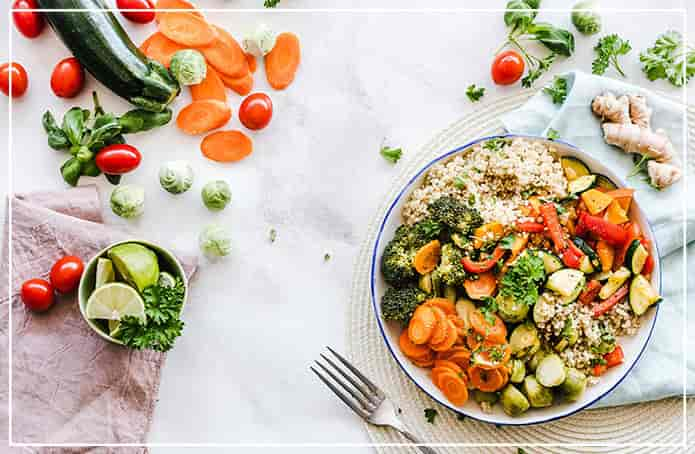
“Make the Digestive System to Enjoy Its Meals Properly and This Will Keep Us Happy and Cheerful”
❖ Read More:
➥ Difference Between Organic And Non-Organic Food
➥ Scabies Home Treatment- How to Identify and Get Instant Relief
➥ Excess Oestrogen in the Womb Leads to Autism in Foetus
➥ Obesity Risks Due to Daily Uses of Smartphones More than 5 Hours
➥ Home Remedies for Kidney Stones

